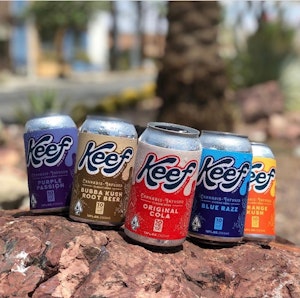
Photo by Prime Cinematics / Pexels
Nuclear Weed: Cannabis Radiation Is More Common Than You Think
While radiating cannabis sounds terrifying, it's a very safe procedure.
Depending on where you live, chances are, you’ve smoked weed that’s been under intense radiation.
As a Canadian, I’m weirdly proud to say that most of the weed I’ve smoked has been irradiated. If you also hail from the great white north, you can say the same.
In the United States, some states use this procedure more than others. But why radiate weed, and is it dangerous?
Cannabis Radiation

Photo by Richard T
We’re not necessarily smoking nuclear weed, nor is our cannabis going to produce unwanted effects you’d know from history lessons on Chornobyl, Hiroshima, Nagasaki, etc.
In fact, irradiating cannabis has become a standard for safe, efficient, and clean farming practices. One cultivation site in Massachusetts, EOS Farms, sends radiation through plants and buds just before harvest.
Massachusetts is one of the only states limiting how much bacteria can be present on a cannabis plant. But the reason radiation is not advertised or spoken about remains clear.
If you were aware that your weed had been irradiated, would you purchase it? It sounds like a harsh and dangerous commercial tactic, but it’s simply the best way to remove mold and bacteria from plants.
Furthermore, it is the only remediation procedure in the industry that does not leave behind unwanted effects, says founder and CEO of EOS Farms, Suehiko Ono.
Why Radiation Is Safe

Photo by Cannafornia / Pexels
Did you know that over 23 states have companies that irradiate cannabis? One of the industry’s leading suppliers for radiation devices is Rad Source Technologies.
The company has already amassed a broad clientele in 23 states, including;
- Colorado
- Oregon
- Michigan
- California
- Illinois
- Washington
This technique to remove bacteria and mold is prevalent in the food industry.
SQDC reports that the unit of measurement to calculate the absorption of radiation rays is Gray4. Most products are irradiated with a dose equal to or less than 45 kilos of Gray, but cannabis uses roughly 10 kilos of Gray.
This means that cannabis is one of the products with the lowest irradiation levels and, therefore, does not impact your health or leave unwanted effects.
It’s used broadly to ensure safe and clean consumption. Forbes notes that it’s especially ideal for immunocompromised people that must steer clear from inhaling/ingesting bacteria and mold to reduce the risk of further infection.
Herb Recommended Products:
READ MORE










